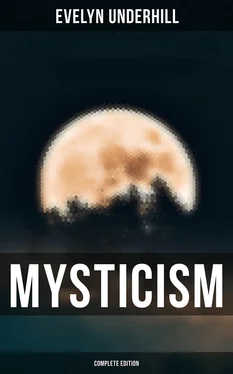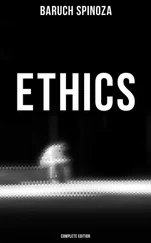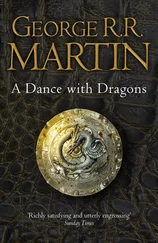Here it is that we approach that attitude of the self, that point of view, which is loosely and generally called mystical. Here, instead of those broad blind alleys which philosophy showed us, a certain type of mind has always discerned three strait and narrow ways going out towards the Absolute. In religion, in pain, and in beauty — and not only in these, but in many other apparently useless peculiarities of the empirical world and of the perceiving consciousness — these persons insist that they recognize at least the fringe of the real. Down these three paths, as well as by many another secret way, they claim that news comes to the self concerning levels of reality which in their wholeness are inaccessible to the senses: worlds wondrous and immortal, whose existence is not conditioned by the “given” world which those senses report. “Beauty,” said Hegel, who, though he was no mystic, had a touch of that mystical intuition which no philosopher can afford to be without, “is merely the Spiritual making itself known sensuously.”14 In the good, the beautiful, the true,” says Rudolph Eucken, “we see Reality revealing its personal character. They are parts of a coherent and substantial spiritual world.”15 Here, some of the veils of that substantial world are stripped off: Reality peeps through and is recognized, dimly or acutely, by the imprisoned self.
Récéjac only develops this idea when he says,16 “If the mind penetrates deeply into the facts of aesthetics, it will find more and more, that these facts are based upon an ideal identity between the mind itself and things. At a certain point the harmony becomes so complete, and the finality so close that it gives us actual emotion. The Beautiful then becomes the sublime; brief apparition, by which the soul is caught up into the true mystic state, and touches the Absolute. It is scarcely possible to persist in this Esthetic perception without feeling lifted up by it above things and above ourselves, in an ontological vision which closely resembles the Absolute of the Mystics.” It was of this underlying reality — this truth of things — that St. Augustine cried in a moment of lucid vision, “Oh, Beauty so old and so new, too late have I loved thee!”17 It is in this sense also that “beauty is truth, truth beauty”: and as regards the knowledge of ultimate things which is possible to ordinary men, it may well be that
“That is all
Ye know on earth, and all ye need to know.”
“Of Beauty,” says Plato in an immortal passage, “I repeat again that we saw her there shining in company with the celestial forms; and coming to earth we find her here too, shining in clearness through the clearest aperture of sense. For sight is the most piercing of our bodily senses: though not by that is wisdom seen; her loveliness would have been transporting if there had been a visible image of her, and the other ideas, if they had visible counterparts, would be equally lovely. But this is the privilege of Beauty, that being the loveliest she is also the most palpable to sight. Now he who is not newly initiated, or who has been corrupted, does not easily rise out of this world to the sight of true beauty in the other. . . . But he whose initiation is recent, and who has been the spectator of many glories in the other world, is amazed when he sees anyone having a godlike face or form, which is the expression of Divine Beauty; and at first a shudder runs through him, and again the old awe steals over him. . . .”18
Most men in the course of their lives have known such Platonic hours of initiation, when the sense of beauty has risen from a pleasant feeling to a passion, and an element of strangeness and terror has been mingled with their joy. In those hours the world has seemed charged with a new vitality; with a splendour which does not belong to it but is poured through it, as light through a coloured window, grace through a sacrament, from that Perfect Beauty which “shines in company with the celestial forms” beyond the pale of appearance. In such moods of heightened consciousness each blade of grass seems fierce with meaning, and becomes a well of wondrous light: a “little emerald set in the City of God.” The seeing self is indeed an initiate thrust suddenly into the sanctuary of the mysteries: and feels the “old awe and amazement” with which man encounters the Real. In such experiences, a new factor of the eternal calculus appears to be thrust in on us, a factor which no honest seeker for truth can afford to neglect; since, if it be dangerous to say that any two systems of knowledge are mutually exclusive, it is still more dangerous to give uncritical priority to any one system. We are bound, then, to examine this path to reality as closely and seriously as we should investigate the most neatly finished safety-ladder of solid ash which offered a salita alle stelle.
Why, after all, take as our standard a material world whose existence is affirmed by nothing more trustworthy than the sense-impressions of “normal men”; those imperfect and easily cheated channels of communication? The mystics, those adventurers of whom we spoke upon the first page of this book, have always declared, implicitly or explicitly, their distrust in these channels of communication. They have never been deceived by phenomena, nor by the careful logic of the industrious intellect. One after another, with extraordinary unanimity, they have rejected that appeal to the unreal world of appearance which is the standard of sensible men: affirming that there is another way, another secret, by which the conscious self may reach the actuality which it seeks. More complete in their grasp of experience than the votaries of intellect or of sense, they accept as central for life those spiritual messages which are mediated by religion, by beauty, and by pain. More reasonable than the rationalists, they find in that very hunger for reality which is the mother of all metaphysics, an implicit proof that such reality exists; that there is something else, some final satisfaction, beyond the ceaseless stream of sensation which besieges consciousness. “In that thou hast sought me, thou hast already found me,” says the voice of Absolute Truth in their ears. This is the first doctrine of mysticism. Its next is that only in so far as the self is real can it hope to know Reality: like to like: Cot ad cot loquitur. Upon the propositions implicit in these two laws the whole claim and practice of the mystic life depends.
“Finite as we are,” they say — and here they speak not for themselves, but for the race — “lost though we seem to be in the woods or in the wide air’s wilderness, in this world of time and of chance, we have still, like the strayed animals or like the migrating birds, our homing instinct. . . . We seek. That is a fact. We seek a city still out of sight. In the contrast with this goal, we live. But if this be so, then already we possess something of Being even in our finite seeking. For the readiness to seek is already something of an attainment, even if a poor one.”19
Further, in this seeking we are not wholly dependent on that homing instinct. For some, who have climbed to the hill-tops, that city is not really out of sight. The mystics see it and report to us concerning it. Science and metaphysics may do their best and their worst: but these pathfinders of the spirit never falter in their statements concerning that independent spiritual world which is the only goal of “pilgrim man.” They say that messages come to him from that spiritual world, that complete reality which we call Absolute: that we are not, after all, hermetically sealed from it. To all who will receive it, news comes of a world of Absolute Life, Absolute Beauty, Absolute Truth, beyond the bourne of time and place: news that most of us translate — and inevitably distort in the process — into the language of religion, of beauty, of love, or of pain.
Читать дальше












